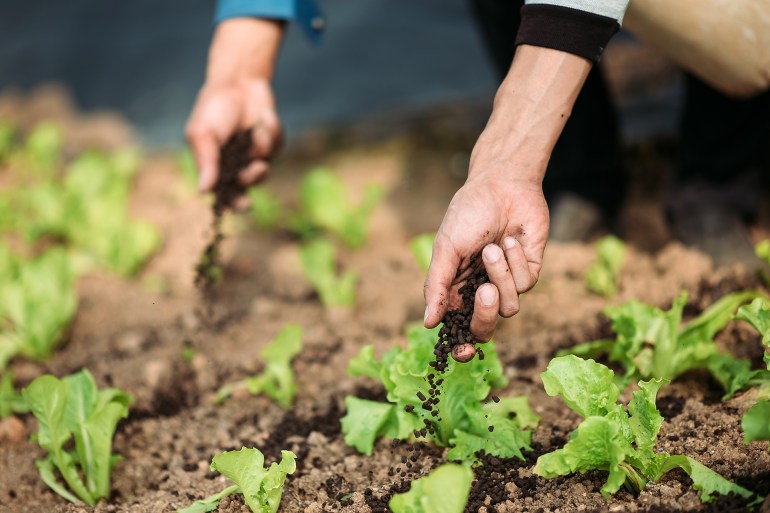As the world relies on agricultural chemicals to feed itself;
Rising costs threaten to damage crops.
And the British newspaper, The Economist, published a report stating that Vladimir Putin’s war risks pushing millions of people around the world to starvation, in addition to the devastation it is causing in Ukraine, due to Russia and Ukraine providing 28% of the wheat traded globally, and 29% of the barley , 15% from corn, 75% from sunflower oil.
Sanctions on Russia and blockades of Ukrainian ports have kept many of that grain out of the world, while farmers elsewhere struggle to make up the shortfall, in part because profit margins are shrinking due to the rising cost of fertilizer.
The newspaper raises a question, saying, "The question is why fertilizers are so expensive?"
Responding by saying that fertilizers played an important role in the green revolution;
That is, the increase in agricultural yields seen in most of the poor world over the past six decades. In 1960;
Crops without fertilizers supported 87% of the world's population, according to Oxford Analytica Research, but by 2015, the rate had fallen to just 52% of the population.
There are 3 main types of fertilizers, which are nitrogen-based fertilizers, potash “providing potassium” and phosphates, due to the sharp rise in fertilizer prices in 2021 for a number of factors;
The most important of them is the high cost of energy and transportation as the economic effects of the Covid-19 epidemic fade, as well as the sanctions imposed on Belarus in December 2021, which produces 18% of the world’s potash, due to its government’s attempts to provoke an immigrant crisis in Europe, which made matters worse.
According to the newspaper,
The Ukrainian war and the sanctions that followed caused prices to rise even more. In 2021, 25 countries were getting more than 30% of their fertilizers from Russia.
In many countries in Eastern Europe and Central Asia, the proportion was more than 50%. In Europe, energy security concerns limit the use of natural gas to make nitrogen-based fertilizers, while Nigeria and Qatar - the cradle of natural gas - are opening new nitrogen plants, and Canada has the ability to increase production potash, this will take time, and prices are expected to remain high nonetheless.
The newspaper points out that all this will lead to chaos in crops, and farmers may have to use less fertilizer, which reduces yield and quality of crops, and they may choose - instead - to move to other crops that require less fertilizer, such as soybeans, which It reduces the supply of crops such as wheat and corn.
Producers in America are expected to plant nearly 37 million hectares of soybeans in 2022, a record 4% increase from 2021, and at the same time, corn plantations will decrease by 4% to 36 million hectares, and there will be little change for for wheat.
Russian war and sanctions caused fertilizer prices to soar (Getty Images)
Can fertilizer use be reduced?
The answer to the question lies in the fact that modern farming techniques such as experimental spectroscopy can accurately measure nutrient levels in the soil, allowing for a more targeted use of fertilizers. But because the technology required is expensive, it is unlikely to help farmers in poor countries. A less technological approach is to use less intensive agricultural methods that preserve soil quality, such as crop rotation, tillage methods that leave the remains of old crops behind or “agroforestry” of combining trees and crops in fields, but these methods take time, effort and foresight, It is neither fast nor effective as modern fertilizers.
The paper notes that the Sri Lankan example illustrates the difficulty of farming without agricultural chemicals;
As the government rushed in 2021 to impose a complete ban on fertilizer imports as part of a campaign to become the world's first fully organic food producer, the result was that farmers warned of crop losses, food prices soared, and the president declared a state of emergency, and the ban was eventually reversed. Albeit partially.
At the present time;
There is no easy alternative to fertilizer if the world is to keep food production near its current levels, and that means higher food prices and increased hunger.

